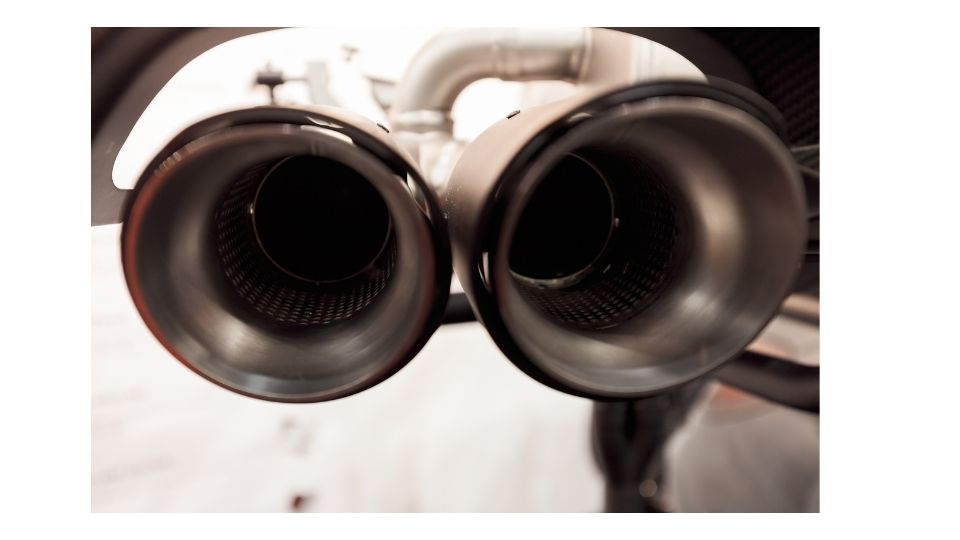Nowadays it is common for most vehicle owners to remove catalytic converters and put on a straight pipe and if you do, is it bad for your engine?
Straight pipes have been around a while and they are becoming more popular among car owners. However, some people claim that running straight pipes can damage the engine because of the lack of oxygen in the exhaust others claim it is better to have your car straight piped because it creates a “free-flow” from the engine to the exhaust which in turn helps boost performance and decrease fuel consumption.
But why is this happening? The article gives an explanation for what these claims about straight pipes hurting your engine are based on and helps to answer this interesting question.
Does straight pipe hurt your engine?
In short, no straight pipe does not hurt your engine, straight pipes are usually used in race cars because it reduces backpressure in the exhaust, therefore creating a better flow of oxygen in the exhaust which is known to improve performance and boost fuel economy but due to emissions regulations, it is not advisable to remove your catalytic converters and run straight pipes on the road.
What is a straight pipe on a car?
A straight pipe is just a plain metal pipe that runs from the exhaust manifold to the tailpipe, and it does not have a resonator, muffler, or catalytic converter and that is why it is called a straight pipe. It is commonly used by vehicle owners who are looking to boost performance and increase the sound of their engines.
What are the main benefits of a straight pipe on a car?
1. Horsepower Gain:
A straight pipe creates less backpressure in the exhaust, therefore creating a better flow of oxygen in the exhaust which is known to improve performance and boost fuel economy. This helps produce more horsepower.
2. Motoring pleasure:
A straight pipe does not have a resonator or catalytic converter which gives you an “unencumbered” sound from the engine, which allows the engine to make full use of its horsepower and make more power. This creates a better driving experience.
3. Better Fuel Economy:
Straight pipes get rid of backpressure in the exhaust, this means that the engine does not need to work as hard to push the exhaust out of the manifold, therefore giving you better fuel economy.
Drawbacks of straight piping a vehicle:
1. Really High Emissions:
Straight pipes are not legal for streets and highways, so if you want to run straight pipes on the road, you will have to bypass your catalytic convertor and your pollution control system which will make the emissions on your car extremely high. This means that you will be polluting the environment more than normal.
2. Louder than stock exhaust:
Because straight pipes do not have a resonator or muffler they are louder than stock exhaust; therefore you will need to either get a muffler or sound dampener to control the noise level of your system.
3. No catalytic converter means no heat dissipation:
Straight pipes do not have a catalytic converter which is responsible for getting rid of the excess heat in the exhaust; therefore, you can overheat and damage your engine because it will be unable to let out the excess heat.
Should You Straight Pipe Your Car?
Although straight piping has a lot of pros, it is not recommended to run straight pipes if you are driving on the road.
Why? Because they usually do not have catalytic converters and in some places, it is illegal to remove your catalytic converters because your car will fail emissions tests. In addition, straight piping your car is not cheap; it requires a lot of work.
Final Thoughts
Straight pipes do not hurt your engine, they help by increasing horsepower, providing a better driving experience, and saving you some money on gas; however, it is not recommended to run straight pipes if you are driving on the road because they usually do not have catalytic converters and in most states, it is illegal to drive around with a straight pipe.

Robert Anderson is a world class motorhead who rebuilt his first carb at age 10, his first engine at age 15, and completed his first full hotrod build when he was just 18! Previously, he has ran a part warehouse, delivered pizzas, and managed the service department for a $20 million/year revenue dealership. Robert knows cars like few others and he is passionate about sharing his knowledge.

